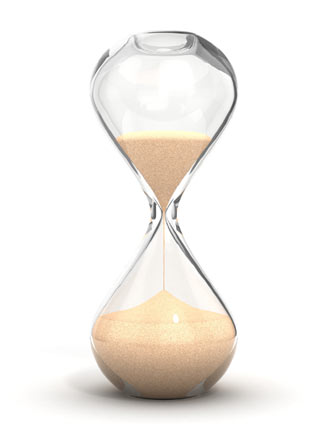
Far more mundane but mandatory is patience in long-term investments or a strategy of savings.
These forms of patience, while important for an ultimate shrine of worship, a perfect performance, a sanctified spirit, reformed behavior or a proper nest egg may not be the most important.
Patience is the power to pause. For the angry, the seconds of waiting before reacting are the longest units of time known to humankind. For example, the delay between asking a child to do something and the child's response requires a form of patience far greater than waiting for an acorn to become a tree.
When we put money into a 401k, our exercise of patience is minimal. Although years will be necessary for the funds to mature, because they are out of sight and protected by early withdrawal penalties, we don't have to exercise patience. True, we exercise planning and forethought. Patience merely happens.
Instead, it is the patience of seconds that is the hardest. This form of patience is essential throughout a hectic day caring for kids. Patience of parenting is tougher than daily chiseling on hard stones or waiting for enlightenment.
Patience of this sort is demanded at the toughest time. These moments are when the parent and child are stressed. It is when everything is in a rush. Patience is needed the most when it is toughest to give.
Children particularly are challenging because if they are a pill, that prompts many parents to believe they have failed. Pain of incompetence is swiftly ameliorated by the anger of power. Disobedience of a toddler or disrespect by a teenager is the last act that should provoke patience. However, those are the exact attacks on relationships when it is needed the most.
Not everyone is gifted with a natural penchant for patience. Tempers flare. People jump to conclusions even without track shoes. Judging occurs too easily and too rapidly. Defensiveness springs instantaneously out of frustration. Action, not patience, is the instinctive reaction in times of crisis.
These neuro-biological responses are natural. However, if there were a slight hesitation, the outcome could be different. Annoyance is built to be instantaneous in order to protect. However, if there had only been patience, the results would have been totally different. Instead of growing mutual distrust, increased understanding can follow.
If patience is not a person's virtue, he can learn. Of course it takes the one quality that he lacks, patience. To compensate, one mother uses the curriculum of prayer for patience with her child. A student develops patience one math problem at a time. Patient role models teach patience.
Patience, like any change in inherent traits, requires mindfulness. How can one fortify patience if he is not aware of his impatience? Blindness to impulsiveness impedes any improvement. However, excuses and submission to the emotions of anger only cement the status quo.
Know triggers of haste. Discover the fallacies that direct feelings to demand instantaneous action. Understand the lies of the past that create boundaries to tolerance. Practice patience with self.
They say patience is a virtue. It is also a necessity for good health. It is critical for a civil society. Patience is essential for learning. Patience is the first ingredient of relationships.
Modeling patience to a child gives the child's developing brain a blueprint for neural pathways. These connections provide the mental control to pause and wait.
Patience is not just sitting around. Patience is hard work. It is a harvest that requires nurturing and watering.
Patience is both a gift and a reward. Stop waiting for it.
Comment by clicking here.
Joseph Cramer, M.D., is a board-certified pediatrician, fellow of the American Academy of Pediatrics, practicing physician for 30 years and a hospitalist.


 Contact The Editor
Contact The Editor
 Articles By This Author
Articles By This Author
